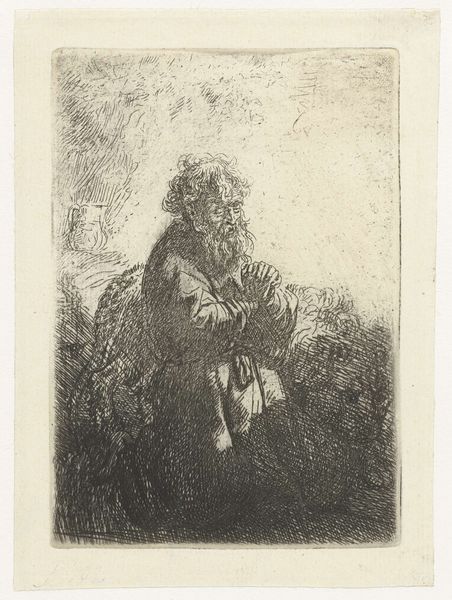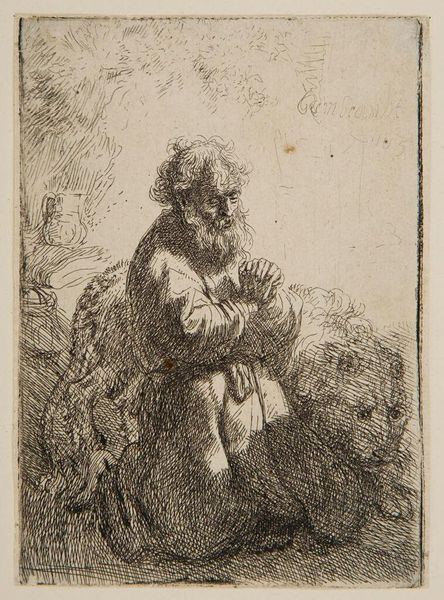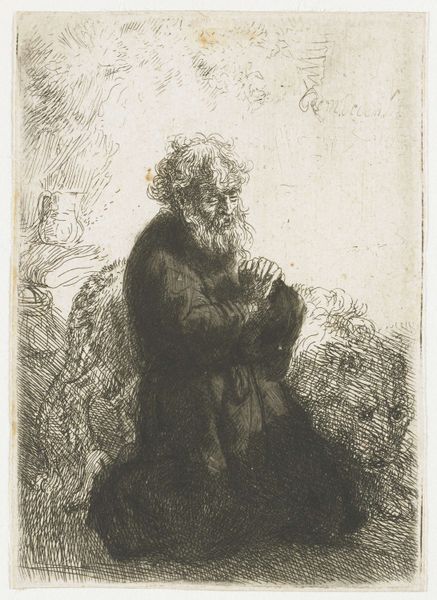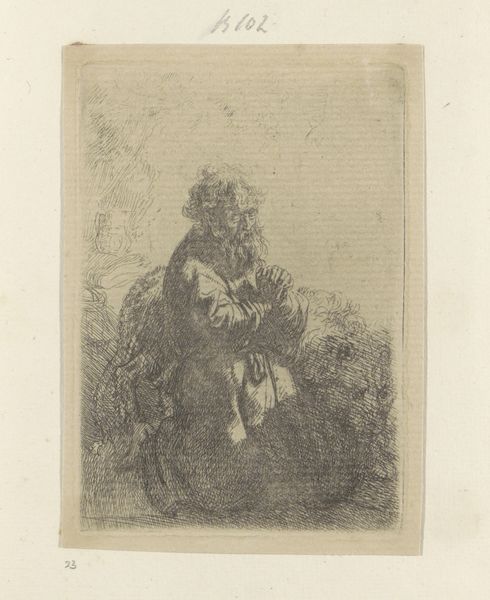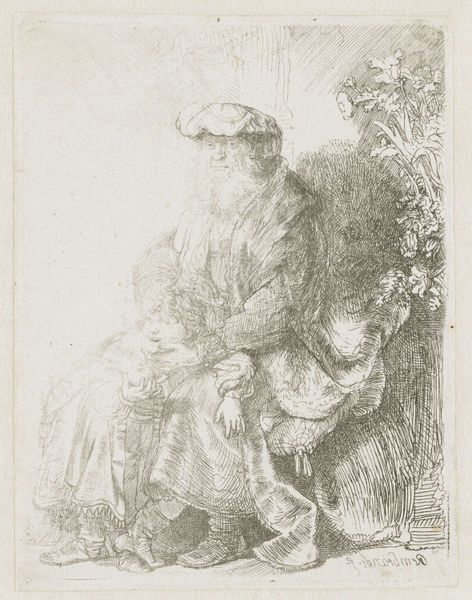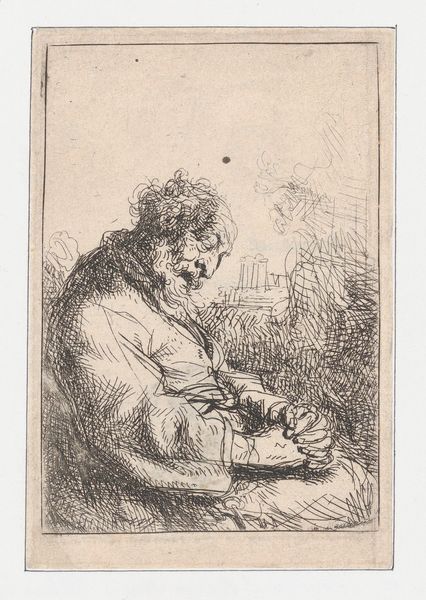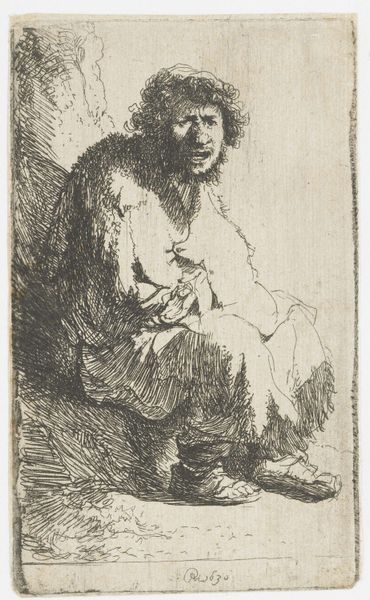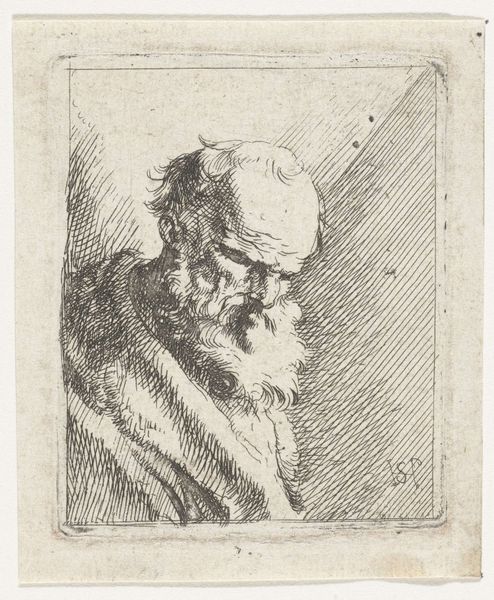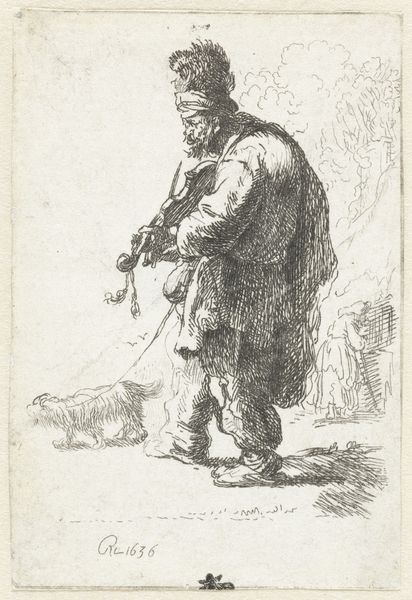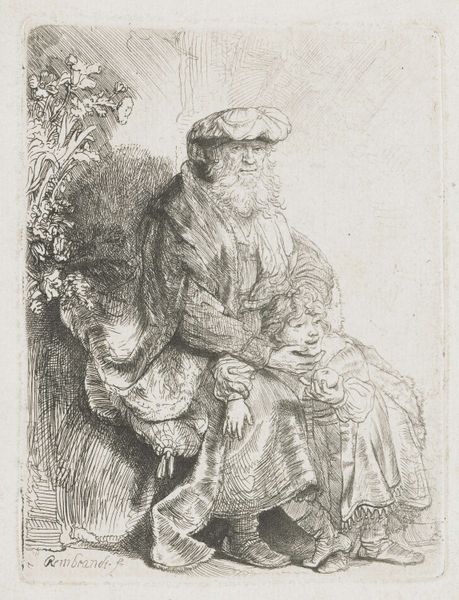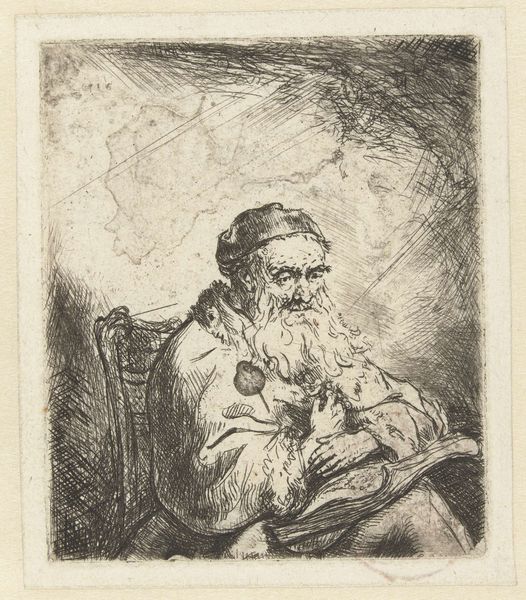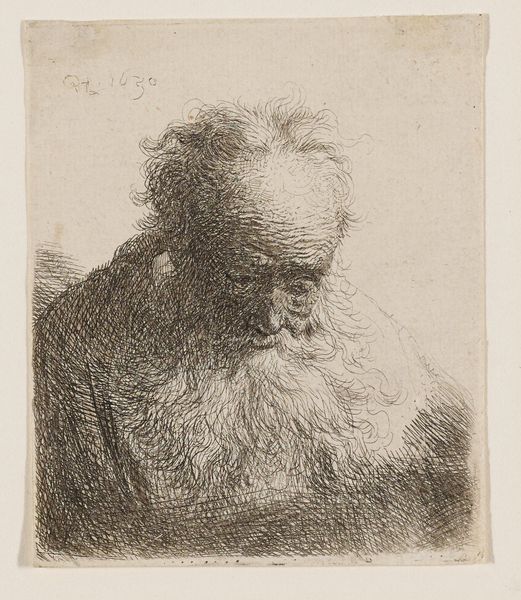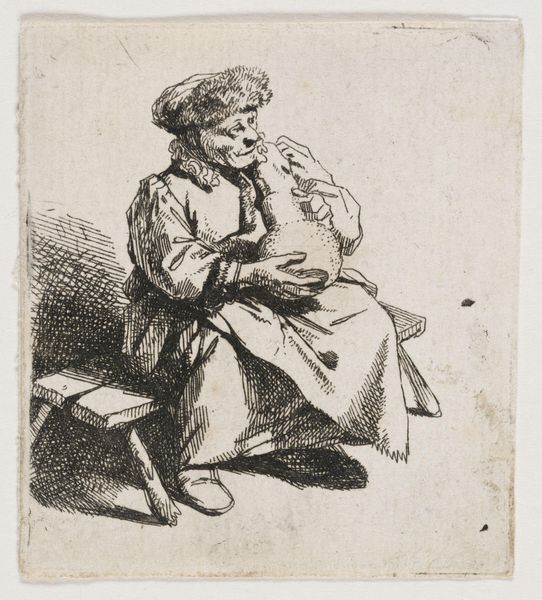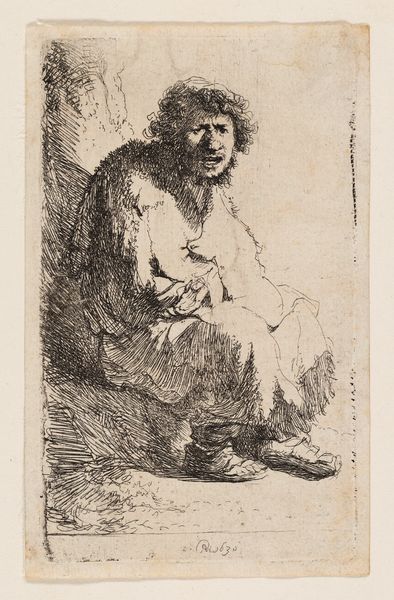
print, etching
#
portrait
#
baroque
# print
#
etching
#
figuration
#
history-painting
Copyright: Public domain
Rembrandt van Rijn created this print of St. Jerome using etching, a technique where lines are incised into a metal plate with acid, then inked and printed. The image shows the saint kneeling in prayer, and the etched lines vary in thickness and density, creating a range of tonal values. See how the quality of the line itself describes textures, from the soft fur of the lion to the rough fabric of Jerome’s robe. Rembrandt uses a web of closely-worked lines to build form and shadow, drawing our eye to the emotional intensity of the figure. In Rembrandt’s time, printmaking was a crucial means of disseminating images widely, a kind of early mass media. But this was not simply a reproductive technology. Etching allowed for a uniquely direct, expressive touch, and Rembrandt was its master. The apparent ease of this image belies the skill involved in its making, and the labor required to make the printing plate, and each individual print. Recognizing these material aspects allows us to better understand the image’s meaning.
Comments
No comments
Be the first to comment and join the conversation on the ultimate creative platform.
